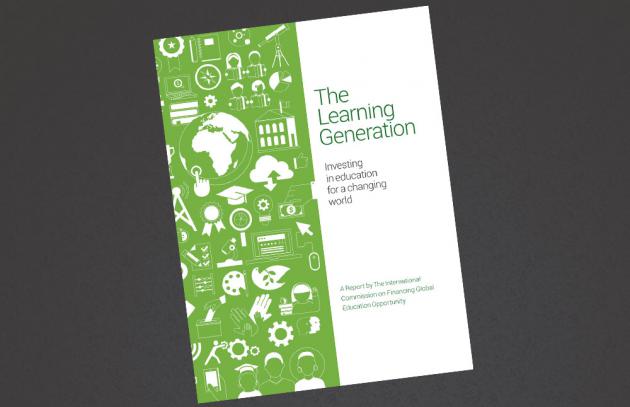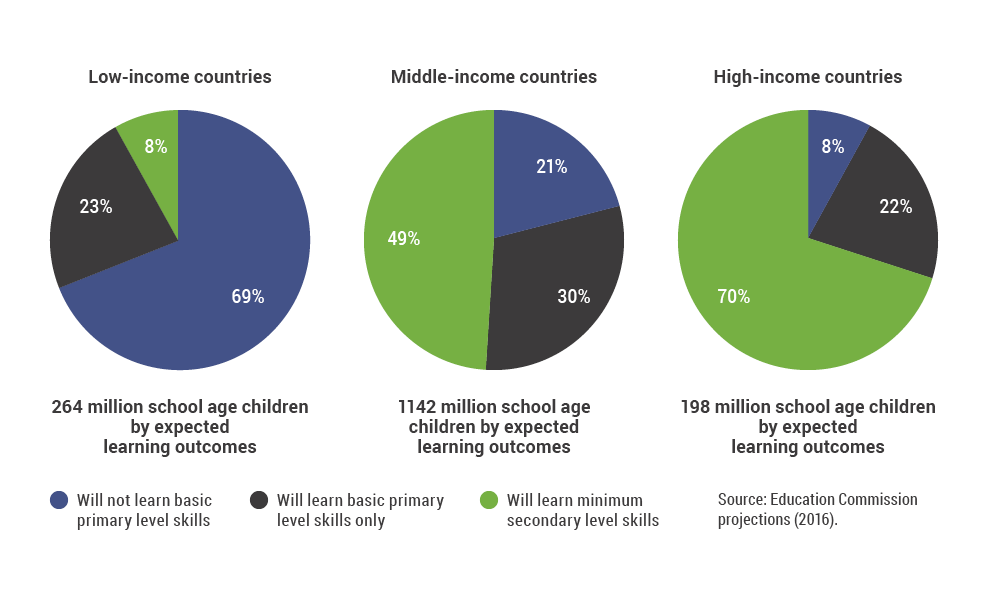report_cover_image.jpg

The International Commission on Financing Global Education Opportunity’s (The Education Commission) launched its report on education financing recently. Over the past year, 25 world leaders have been working together to identify how to develop a renewed and compelling investment case and financing pathway for achieving equal educational opportunity for all children and young people. The Education Commission has worked with over 300 partners representing 105 countries, including 30 research institutions, including IIEP, and four expert panels.
Strengthening education systems to make learning happen
This is IIEP’s core objective. As a proud partner of this launch, we contributed to the Education Commission report in the area of education financing, including on national education accounts (NEA) in collaboration with the UNESCO Institute for Statistics.
NEA is a priority focus for education transformation. As the report recommends, all countries should prioritize tracking expenditure from system to school level and publish national education accounts as part of their data infrastructure. Publishing data on how resources are being used enables teachers and communities to help ensure resources reach their intended destinations.
Through implementing a structured methodology, the NEA organizes multiple data from key funding sources – public, private and external donors– in a compatible and sustainable way. The information is then used to help identify gaps, overlaps or misuse in the ways in which education is funded, helping to better direct resources to policy objectives and assist in international monitoring of progress towards the fourth Sustainable Development Goal (SDG 4).

Investing in education for a changing world
In “The Learning Generation: investing in education for a changing world,” the Education Commission outlines a vision for the largest expansion of educational opportunity in modern history and the steps necessary to make the #LearningGeneration a reality.
The world faces fundamental and urgent challenges: prosperity, security, migration, health and others. If we fail to act, the Commission projects that by 2030 over 800 million young people will not be on track to gain basic skills and 1.5 billion adults will have just a primary education.
If we do not act, by 2050, the number of lives lost each year to lower levels of education would equal those lost today to HIV/AIDS and malaria. Already some 40 percent of employers globally are finding it difficult to recruit people with the skills they need. A bigger skills gaps is likely to unfold and will stunt growth in the global economy.
The Commission found that on average an estimated 2 percent of a country’s GDP is spent each year on education costs that do not lead to learning. In low-income countries, this amounts to half of the entire education budget.

But it is possible to get all young people into school and learning.
The Commission calls for four major transformations for more and better financing for education:
|
|
|
|
The Commission calls on the international community to do its part and build a “Financing Compact for the Learning Generation” so that any country willing to make the reforms and provide the financing necessary is met with equal support from the international community. The Commission calls for increased international support, the establishment of a Multilateral Development Bank investment mechanism, new accountability mechanisms, among other proposals.
Learn about the #LearningGeneration
- Explore the report: report.educationcommission.org
- Visit the website: educationcommission.org
- Facebook: facebook.com/educommission
- Twitter: @educommission
- YouTube: http://bit.ly/1PIXfjo






